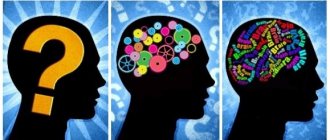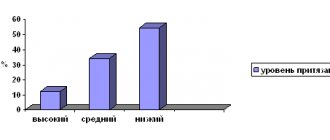An erudite is always an educated person, but not every educated person is an erudite. Who can be considered an educated person? In explanatory dictionaries and Wikipedias there is an absolute confusion of opinions on this topic. Perhaps, having become an erudite, you will be able to put an end to this issue. Now only one thing is clear: an educated person is literate, distinguished by a culture of behavior, vocabulary, has a broad outlook, in-depth professional knowledge of the highest level of education. And special books will help you become more erudite.
Is there any benefit from erudition?
Erudition is a higher level concept. Translated from Latin, this word means a scientist who has overcome rudeness and ignorance. An erudite person, unlike an educated one, has a broader outlook; he absorbs knowledge through books, research, analysis, and not through manuals and textbooks on the subject. Erudition appears on the basis of education, constant reading, and personal understanding of the sources read. A person who has a breadth of knowledge that allows an individual to improve, at the same time rejects primitivism in explaining the structure of the world, and helps the development of society.
Some participants in the debate on the topic “do we need erudition” consider excess knowledge harmful. They call erudition an “abstruse hobby” that is not applicable in everyday life. Knowledge collectors, they say, read everything indiscriminately; most of this knowledge will never be useful to anyone. Most likely, this part of the debaters has little in common with educated people. The flip side of high education is ignorance; with such baggage, a bright future really becomes illusory and unreal.
What erudition gives:
- the ability not just to study a subject, but to generate new things and make discoveries;
- organize technological breakthroughs, ensure technical progress;
- studying the issue from different sources allows you to compare, evaluate the accuracy and correctness of the knowledge gained;
- personal growth, intellectual development, memory and logic training.
The most famous parable emphasizing the need for erudition is about an argument between four blind men telling what an elephant looks like. There is a sculpture in Bonn: each of the blind men holds on to a separate part - a leg, trunk, tail, torso. And they describe the elephant precisely according to their sensations: a pole, a hose, a rope, a soft wall. The elephant cannot be created until all their images are combined together. This will be scientific objectivity, which is possessed to a greater extent by erudites.
Erudition - critical view
Knowing how to increase your erudition, you develop your own abilities, which is useful for every person. An increase in erudition simultaneously entails an expansion of knowledge in various fields.
But that's not the main thing. By collecting knowledge from primary sources, a person can compare, draw analogies and evaluate from a critical point of view. In modern reality, such an approach is very useful, since a large amount of information comes from outside. It is important to understand what is false and what is true. Erudite individuals compare information, evaluate, check for contradictions and discard what has no scientific or historical basis.
How to become a polymath
In everyday perception, erudition is knowledge that can be shared with others. But you won’t be able to gain this knowledge by reading everything you can get your hands on. Cramming to remember is also not an option. The main thing in this matter is not the amount of reading or memorized facts, but the ability to analyze, compare, critically evaluate, and check the information received. But it's a must read. We’ll tell you what and how much now.
- It is better to start with a topic that is closer. First, try to become an erudite in your field of activity. When your colleagues recognize you as an expert polymath, you can move on to another area of knowledge of interest.
- You can increase your level with the help of encyclopedias. Bolshaya Sovetskaya, for example, or thematic ones, there are many of them on different topics for different age groups. They are brief, succinct, but contain quite a lot of knowledge on any range of issues.
- There is special training for scholars using the “What? Where? When?" It suggests a seemingly strange, but in fact very interesting list of works that actually increase erudition.
- For two decades, non-fiction book fairs have been held in Russia - a term that identifies a sector of non-fiction, scientific, and applied topics in literature. If you want to show off your breadth of horizons, then you need to read non-fiction. This includes dictionaries, memoirs, popular science literature, cookbooks - all sources of information that contain facts, not speculation.
The ability to analyze includes checking sources of information and textures. Having facts from different sources on one topic, possessing knowledge and the ability to think logically, you can become an erudite in a specific direction - science, religion, politics, etc.
Reading books
Books read are also an excellent basis for erudition - well, of course, if they are not women's novels or detective stories by Dontsova. In the latter, by the way, there are definitely sensible thoughts, but it is difficult to glean useful information from them.
But classic examples of fiction contain a lot of useful information, especially if the book describes the author’s contemporary era. By the way, a pretty good result for those who do not like educational books and magazines: both pleasure and benefit. Well, who would tell us so fascinatingly about various poisons if not Arthur Conan Doyle through his character Sherlock Holmes? By the way, the author of this most famous detective of all time also had encyclopedic knowledge, which he shared with his readers.
What's good about non-fiction?
A widely educated person begins not with nuclear physics, but with fiction. It is a very important stage for the development of intelligence. Knowledge of the classics will immediately reveal your education when communicating with others. Further, erudition rests on popular science and scientific literature, which has an antagonistic definition - non-fiction (non-fiction). This part of the literature includes:
- journalism;
- popular science publications;
- encyclopedias, dictionaries, reference books;
- biographies, memoirs;
- religion;
- psychology;
- self-knowledge, self-development,
- art, culture;
- sport, health.
Of course, not funny “popular pictures” from the series of how to quickly lose weight or get rich from an unknown Name, but written by professionals, experts in their field. The current wave of printed products does not have time to be studied, analyzed, and checked. Some people trust false information without having time to check its accuracy. True scholars will never evaluate a fact based on one source of information. They will read several, find inconsistencies, and get a real version of the event. Because they look at the elephant as a whole, which means they know how to analyze.
Sources of knowledge
So, you have decided to develop your erudition. Where to begin?
Let me make you happy right away: you have already started, without even knowing it. Sources of knowledge are:
- educational institutions
- books
- movies
The development of erudition begins at school. Because if a copywriter studied well and knew a school chemistry course, then he undoubtedly understands how corrosive acids act on many substances, even metals. What can we say about teeth?
Non-fiction of the XX International Book Fair
It is difficult to compile a list of the best books for the development of erudition, because this is a purely individual question. But experts from the largest Book Fair in Russia are quite capable of giving advice.
Gregory Burns. What does it mean to be a dog? And other discoveries in the field of animal neurobiology
Per. from English I. Evstigneeva. M.: Alpina Non-Fiction, 2020. 333 pp.
489 - 547 rub.
Gregory Burns. What does it mean to be a dog? And other discoveries in the field of animal neurobiology
Scientists study animals to try to discover cognitive abilities. Stories about scientific experiments on dogs, dolphins, and fur seals are presented by one of these scientists. Does the dog understand what color is called blue? What is “here” and “there” is clear to us, but to the Navy SEALs? Scientific research is always a complex but interesting process. Having taught dogs not to be afraid of a tomograph, the scientist told what was going on in the dog’s head. Navy SEALs understand musical ri using ultrasound. Everyone has feelings similar to humans.
Advantages:
- the author strives to show that the animal world plays an important role in the life of the planet. They only lack speech skills, otherwise they see, feel, and rejoice like people.
Flaws:
- Laboratory experiments on animals cannot be popularized; this is animal abuse.
Lyalya Kandaurova. Half an hour of music. How to understand and love the classics
M.: Alpina Publisher, 2020. 438 pp.
499 - 504 rub.
Lyalya Kandaurova. Half an hour of music. How to understand and love the classics
The author-musicologist explains the essence of classical music to generations who grew up after Perestroika. Easy-to-read four-part formatting. Read for yourself what the original names mean, it’s not written in an abstruse way, it’s easy and interesting to read. The author twists the plot like a detective film, intricate, mysterious, fascinating. Any play that is described can be downloaded on the Internet using a code and listened to. Knowing the history of creation, the principles of collecting notes into bars, listening becomes much more interesting.
Advantages:
- thanks to the author: I discovered the polyphony of Okegem;
- QR codes - you listen to the work that is written about, this is a good plus.
Flaws:
- I graduated from music school, but it was difficult to navigate among the variety of terms.
Dilshat Harman, Mikhail Mayzuls, Sergey Zotov. The Suffering Middle Ages
M.: AST, 2020. 416 pp.
457 - 696 rub.
Dilshat Harman, Mikhail Mayzuls, Sergey Zotov. The Suffering Middle Ages
A rare example when an Internet public (a community of history lovers - half a million subscribers) became a bestseller. Here you will find explanations for the marginalia in the margins of manuscripts and frescoes of the Middle Ages, strange, sometimes completely obscene. Monkeys in the margins of ancient manuscripts, obscene figures on church walls - where does such sacrilege come from? 600 illustrations, well-written text, seasoned with humor - this is how it turned out to be a historical piece. Its educational character and innovative ideas made it controversial for scientists, but one of the most widely read historical publications.
Advantages:
- it turned out to be a good encyclopedia of medieval icon painting for those just entering the topic, not for professionals;
- five thousand illustrations - that’s cool: European, Christian painting (Catholics, Protestants, Lutherans); The main goal - to unravel the symbolism of medieval paintings - was successfully completed.
Flaws:
- Often the image is not on the page where it is mentioned, this is annoying;
- frivolous pictures, the authors help to understand their meaning, but there is nothing about drawing technique, color symbolism.
Erudition - what is it and how to improve it?
An important point is self-education and the ability to find the necessary information, and not just absorb what is taught in universities and other educational institutions.
Absolute erudition - what is it? In simple terms, this is the highest form of knowledge, an unattainable ideal that is still worth striving for. How can you increase your level of erudition?
Firstly, you should not limit yourself to knowledge only in one specific area of knowledge: by expanding our horizons, we force the brain to work more intensely, thereby increasing the level of intelligence.
Secondly, useful recommendations would be reading good literature and serious publications, not the yellow press, visiting all kinds of scientific exhibitions and cultural events. When traveling, you should not only enjoy the local landscapes, but also be interested in the history and mythology of the country you are visiting.
Non-fiction at the Red Square Book Fair
The selection from the “Popular Science Book” series was made up of publications that were in high demand at the fair and was liked by the literary expert-critic.
Richard Dawkins. Selfish gene
Publisher: Gorpus, translation by N. Fomina, 2013. 512 pp.
564 - 576 rub.
Richard Dawkins. Selfish gene
The author's first book (1976) remains the most widely read of all his works. This is a masterpiece of literature and biology, published in 20 languages. Well illustrated, it teaches about evolution and genetics. What is obvious to biologists will be a discovery to the “non-biological layman.” Informative, interesting: let’s take a walk with the author through time from insects to humans, talk about nature’s strategies, behavioral characteristics, and the “cultural revolution.”
Advantages:
- the author is an excellent conversationalist, smart, subtle, simply talks about complex things;
- we are biological machines - tough but honest;
- serious scientific work, controversial, but presented at a very accessible level;
- Even for a 100% humanitarian, it was tough.
Flaws:
- There are absolutely no illustrations, diagrams, or graphics.
Diana Halpern. Psychology of Critical Thinking
Publishing House PETER. Series: Masters of Psychology, 2000. 512 pp.
Electronic version, download for 240 rubles, 512 pages.
Electronic version downloaded for free, 158 pages.
Ayana Halpern. Psychology of Critical Thinking
A serious work on cognitive psychology, informal logic, in which there is a lot of psychological research. Interesting descriptions of fallacies - logical and intuitive, options for analyzing argumentation, tools for developing effective thinking, many other issues related to logic, memory, and brain function. A good guide for those who want to think modernly and will help with self-education.
Advantages:
- the structure of the text is correct - from simple to complex, each chapter is like an independent work, at the end there are conclusions, terms, it is very convenient to study;
- there are a lot of quotes, examples, problems - the head works, it’s not easy to read diagonally;
- real research, practical application suggested - excellent.
Flaws:
- not found.
David Edmonds. Would you kill the fat man?
Publishing house of the Gaidar Institute. 2020. 256 pp.
David Edmonds. Would you kill the fat man?
Philosophical work on the topics of ethics - “what is good and what is bad.” The science is subtle, with a lot of contradictions and paradoxes, and is described by the author with knowledge of the matter. Easy to read and gives a lot of useful knowledge. Ethical dilemma: are you ready to push one fat man onto the rails to save five tied to the same rails? Questions of the moral philosophy of “walking on corpses” or universal love have always been of interest precisely because of the complexity of choice.
Advantages:
- excellent narrative structure, easy and interesting to read;
- educational: catchy because there is no “correct” answer to some questions, both are wrong.
Flaws:
- a lot has been written about the “trolley problem”, an important point, but it is only a stepping stone to the main topic;
- For some reason, the author delved into the personal lives of female philosophers, completely off-topic, but there is not enough analysis of the problem.
Why is erudition needed?
This question arouses discussion, discussions and debates take place around it. Some argue that polymaths are eccentric people who waste time on unnecessary hobbies. Those who want to know everything absorb books that come their way and get carried away by unnecessary knowledge.
They are like collectors who enthusiastically chase after old stamps, badges or works of art. In the same way, scholars increase their knowledge by looking for new roads for this.
Reasoning this way, representatives of the first group answer the question negatively: is it necessary to increase erudition? In ideas, erudition is an accumulation of knowledge, and not the ability to make discoveries and guarantee breakthroughs in the field of technology.
The second part of people responds to such judgments with the phrase: he who is not educated is ignorant. To support this statement, they give examples where ignorance is costly for others:
a lawyer who does not understand legislative terms and rules; a doctor who makes a diagnosis over the phone or misses signs and does not identify problems in time; a psychologist who has superficial knowledge and gives advice without delving into the question; a teacher of Russian, history, or another subject who has knowledge that is gleaned only from school literature.
Each of these cases is based on a lack of professional knowledge and a low level of education. These problems together lead to the inability of the specialist to assess the situation in the critical spectrum. As a result, it is impossible to find correct solutions.
Erudition is the ability to think beyond primitive explanations of the existence of the world. It leads to the development of a special mental makeup.
TOP 7 best books that improve erudition
When in the television game “What? Where? When?" the team gives the correct answer to a question that is indirectly related to science, history, the audience is simply amazed: ridiculous topics, and experts answer. Because for them there are no stupid questions. Knowing who eats bees, how lemon changes the color of tea is also important, because there are laws of physics and chemistry, logical chains, and relationships with the cosmos.
Advantages:
- most books in this direction provide answers to numerous questions, becoming a starting point for a serious study of other issues, and thus one’s horizons broaden;
- Almost all authors reveal topics with humor, but behind every word there is scientific confirmation or generally accepted opinion;
- Each author is a scientist with his own theories, discoveries, and very useful publications.
Flaws:
- Most books on this topic have few illustrations, but many specific terms that make it difficult to understand the essence.
Bill Bryson. A Brief History of Almost Everything in the World
Publisher: AST. Series: Civilization: birth, life, death. Translation by V. Mikhailov, 2020. 608 pp.
584 - 644 pp.
Bill Bryson. A Brief History of Almost Everything in the World
A completely unusual encyclopedia about various fields of science - from Darwin’s theory to black holes. She received an award for her contribution to the development of science. It is already a bestseller in America. The author sought to prove that complex things can be told simply, then knowledge will be obtained easily, without straining for precise calculations. As a result, it was written in non-scientific language for the ordinary reader who wants to broaden his horizons. But the external ease of reading does not indicate an entertaining theme.
Once you become interested in a topic, you will quickly find more serious publications about it. From simple to complex is a completely productive way to gain knowledge and develop erudition. The encyclopedia, by the way, discusses the development of the Universe, civilizations, human nature, and the most important world discoveries.
Stephen Juan. Oddities of our body
Publisher: Ripol-Classic. Series: Unusual in the ordinary. Translation by A. Davydova, A. Romanov. 2020. 560 pp.
386 rub.
Stephen Juan. Oddities of our body
Primitive school anatomy does not give a complete picture of our body. The author talks with knowledge and a sense of humor about how the most complex mechanism works inside, what processes take place in it. How a person is born and dies, the likelihood of accidents, their consequences - complex, but important for the perception of oneself in this world questions are covered without tragedy, popularly, with ease. Dwarfs, giants, genetic abnormalities, diseases, longevity - the author talks about all this and much more.
John Lloyd, John Mitchinson. The Book of Universal Delusions
Publisher: Phantom Press. Series: The Book of General Delusions. Translation by A. Rakhuba. 2012. 384 pp.
304 rub.
John Lloyd, John Mitchinson. The Book of Universal Delusions
People very often make mistakes, because knowledge is relative, facts can be interpreted incorrectly, literature is mostly useless. General delusion gives rise to fear of recognition and is consolidated as the norm. This is what the authors are thinking about. Light style, easy to read. It will be very useful for scholars: 320 questions, most of which are in IQ tests, are analyzed in detail and explained.
Robert Enwood. Why bears don't run downhill and 200 more interesting facts that require explanation
Publisher: Dobraya kniga. Series: Books for the curious. 2010. 320 pp.
276 - 470 rub.
Robert Enwood. Why bears don't run downhill and 200 more interesting facts that require explanation
The author collected incredible, ridiculous, interesting stories, beliefs, questions in pubs, on the streets, in shops. Having studied the topic comprehensively, he found a reasoned answer and put it into an easy, popular form. Yes, dogs don't need to be treated to chocolate. No, human height is not a constant; in the evening it is 2 cm lower than in the morning. Do guinea pigs sweat? Stupid questions, aren't they, but the answers, having a scientific background, send scholars to various sections of anatomy, physics, and genetics. And this is not nonsense at all.
Augustus Brown. Why the panda stands on its head and other interesting stories
Publisher: KoLibri. Series: Galileo. Translation by V. Svechnikov. 2010. 384 pp.
206 rub.
Augustus Brown. Why the panda stands on its head and other interesting stories
It is very useful for erudition to have knowledge about our smaller brothers. The amazing world of animals can not only surprise you with their skills and abilities, but also show human habits. Or has man adopted this from animals? It turns out that they also have problems of fathers and children, there are parties, games of “mafia”. It is written with humor, easy to read, and surprises from the first page.
Mick O'Hair. Who eats bees? 101 answers to seemingly idiotic questions
Publisher: Ripol-Classic. Translation by I. Novoseletskaya. 2007. 256 pp.
The electronic version is downloaded for free.
The author's last name is spelled differently on social networks: Hayer, Khara, Hair. He loves unusual, ridiculous questions, and enjoys looking for answers to them that can surprise and enlighten you. His style of presenting material is popular with readers of different ages. After reading the answers, you will be able to show off interesting facts about the company.
Mick O'Hair. Why elephants can't jump and 113 more questions that will baffle any scientist
Publisher: Dobraya kniga. Series: How and why. 2011.256 pp.
271 - 303 rub.
Mick O'Hair. Why elephants can't jump and 113 more questions that will baffle any scientist
Continuation of the previous one. Again strange and funny questions, smart professional answers. The author is the editor-in-chief of a popular scientific magazine, where subscribers send their questions. Here you will find stories about the amount of memory a person has, what is the flight altitude of a butterfly, and why the face becomes crooked when eating sour food. Elephants don’t jump, and sparrows can’t walk—what a paradox! We are looking for answers.
Horizon
Questions
The main problem of a person is that he simply ceases to be interested in the structure of the world. Something seems so familiar to him that he no longer has the need to figure out how it works and how it is designed.
By the way, children often baffle adults when they have to explain simple things, for example, why a refrigerator creates cold and where the wind comes from a hairdryer.
So, to develop erudition, use Cicero’s recommendations. Namely, try to explain and describe any situations based on this list:
- Who?
- What?
- How? With using what?
- For what?
- How?
- When?
- Where exactly?
Aphorisms
Quoting smart, famous cultural and scientific figures indicates the presence of high intelligence. Only if it is appropriate. By the way, aphorisms also often help to defend one’s opinion in the process of argument and discussion.
Just memorizing all sorts of collections will not help much. Try to think carefully about each phrase you read. Only then will it be remembered and appear in your head in a timely manner if you need to argue your point of view and so on.
Historical dates
Be sure to learn historical dates. Then the structure of the world will become more understandable and systematically built for you. The chronology of events is very important; without it it is impossible to navigate the information space.
Let’s say, if you are asked “Who did Grigory Aleksandrovich Potemkin fight for in World War II?”, then you will not have to calculate the years, because at that time he had been dead for a long time.
This is a primitive example, but it shows how important historical dates really are. Otherwise, your interlocutors can catch you at any time by asking a simple question. And then the reputation of a reasonable person with a broad outlook will be lost.
Books
Study encyclopedias, reference books, collections with various materials. For example, this would be great:
- Vladimir Antonets "Simple questions." In this book you will find answers to complex and unusual problems. For example, how to measure beauty, or how many wars has humanity survived?
- Alex Bellos "Beauty Squared" For those who want to improve their mathematical knowledge. And in a completely unusual way. Do you know how to use formulas to calculate the probability of meeting your “soul mate”? If not, then go ahead and get a book.
- Charles Whelan "Naked Statistics". You can rely on statistics to argue your opinion, invent something, etc. But it does not contain dry facts, but rather ways that will help you calculate and understand something in order to improve the quality of your life.
Websites and online programs
If you don't know where to start, I recommend checking out this list:
- Vikium. With its help you can improve memory, attention and thinking. By training literally 20 minutes a day, you will be surprised at the results you can achieve. This is the best brain training platform at the moment.
- Brainapps. Games, puzzles and fun challenges that will make you a better person. First, you will take a test to determine your strengths and weaknesses. This will allow you to see the whole picture and develop an individual training program.
You will get more information about such sites from this article.
A few simple tips for beginning scholars
If you are interested in accumulating knowledge, analyzing, understanding, knowing more than others about everything in the world, you need to have several mandatory habits.
Save new words
Study newly heard terms and words. While you were studying at university, the flow of new concepts was quite large, your brain was working in good mode. Next, you need to train it yourself so that the creation of neural connections does not stop.
Individual words will not make you an erudite, but each word will lead to a thread of family ties that you will build and study. Your worldview will be structured more and more subtly. The larger the tangle of connections, the faster the simplicity of thinking changes to cognitive complexity.
In practice it will look something like this:
- learn at least three new words per week and retain them in memory;
- first try to understand an unfamiliar word without a dictionary, think logically, try to guess its meaning, then check with dictionaries;
- analyze words that have different effects in different areas: reconstruction of a plant - reconstruction of a historical event;
- read popular science literature, study terms, try to understand their meaning, connections with other categories, wrap a tangle of connections around each word.
Replenishment of the thesaurus
Your lexicon, storehouse - your dictionary-thesaurus. You can expand it by using synonyms in writing and speech. By diversifying your speech with words that are identical in meaning but different in sound, you expand your vocabulary. Example: arrived, arrived, got there, came, showed up, visited, looked in...
In addition, synonyms often superficially unite concepts; a true erudite will easily explain the difference between a typhoon and a cyclone, a mountain and a hill.
Criticism and analytics
Be sure to read criticism, reviews of specialists, experts about the issue of interest. This is the only way to get an objective picture, and not a personal opinion based on first impressions. By studying materials on a specific issue, you will get several points of view:
- from the original source;
- personal;
- an expert who knows the topic.
Criticism is useful in understanding weaknesses. Having three different opinions, you can compare and analyze. With this approach, reading ceases to be a passive assimilation of information and turns into mental efforts called comparative analysis.
Write a lot
Written speech is the materialization of your thoughts, a very difficult matter. You need to learn to express your thoughts in writing, this will help you structure them and build logic. Of course, it is preferable to write not letters to relatives, but on popular science and philosophical topics.
By trying yourself in different sectors of knowledge, you will understand what your strengths are and where you still need to gain intelligence.
Read anytime, anywhere
Not detective stories or romance novels, but philosophical treatises, memoirs, scientific articles. Fiction must also be present, but smart, serious, classic. Today you can read e-books downloaded to your tablet, and audio versions are available (although they are more difficult to perceive and remember). Reading very productively trains the brain, develops memory, and broadens one's horizons.
You can talk as much as you like about Internet search engines, where you can find an answer to any question in a minute, but only an erudite is able to provide not just information, but analytics: a complete, multifaceted picture, solutions, uses, consequences. The Internet is an assistant to the erudite, but it is unlikely to replace him in the near future. So, let’s train our memory, expand our vocabulary, and move towards perfection!
Method No. 5. Attend various sections based on your interests.
Today, not only schoolchildren and students can engage in self-development and get involved in certain activities. Develop your hobby. Moreover, it can bring not only moral satisfaction, but also material satisfaction. For example, you can become interested in knitting, discover new patterns and models, and then knit unusual sweaters for yourself (and in the future for sale!).
Why is this not self-development? Moreover, now you can find various video reviews and blogs, sections on teaching this or that skill. This approach will also allow you to increase your erudition and broaden your horizons, develop new qualities and skills.
Method number 6. Watching movies
Today, more and more directors are making films based on real events. Of course, this cannot be done without “embellishments,” but the fact remains that this happened before, this was taken from life. Moreover, films also often use new words that came to us from abroad or phrases previously unknown to us. Watching films (regardless of their genre) also helps to increase erudition,
Thus, one should not confuse education (having a certain education) and erudition. These are two similar, but very different concepts. You can become erudite only by your own desire, if you engage in self-development. You can increase your erudition in different ways. But it is best to use the one that is closer to you (more convenient and simpler).
Method 5. Watch smart TV shows
Users of the World Wide Web often associate television with evil. Today it is even fashionable to boast: “We don’t have a TV at home!”
Indeed, the quality of content on many channels leaves much to be desired, but there are alternatives. For example, Discovery. This TV channel produces very high-quality popular science programs that cannot be legally downloaded on the Internet.
Watch scientific programs in the foreign language you are studying - this is double brain training.
Method 2. Read more
When our parents needed new information, they opened a book. Generations Y and Z gain new knowledge on the Internet. The volume of reading may not have decreased, but the quality often suffers. After all, books are read thoughtfully and sequentially, but articles are usually simply scrolled with the eyes.
Subordinate your reading to a plan: make a list of books, distribute them by areas of knowledge and genres. Services like Goodreads or Livelib can help you create such a list. Then methodically read the books one after another. Just do it right - use one of Mortimer Adler's methods.
Get rid of mistakes
First of all, you need to get rid of speech errors, that is, errors in the use of words. First, understand the paronyms. You need to distinguish the addressee from the addressee, the instigator from the instigator, and the ignorant from the ignorant.
Be sure to pay attention to spelling: spoiled or spoiled? normalize or normalize? amused or envious?
Also use phraseological units correctly and follow stylistic norms. We recommend reading about other possible mistakes here (in general, you can easily enroll in the Russian Language online program, which will improve your speech).
Method 7. Solve puzzles
If video games are still not your thing, buy a good old Rubik's cube, tangram or puzzle. As an option, download smart games to your smartphone.
Puzzles “rejuvenate” the brain, develop memory, thinking and perseverance. They are also excellent time killers: if you get carried away, you can spend more than one hour solving the puzzle. What else do you need on a train or plane?
Take an example
Try to regularly read authors whose style you like. Try to highlight what exactly attracts you. Perhaps it is a certain style of speech, perhaps a wealth of vocabulary, perhaps something else. Identify the most “delicious” in someone else’s text and borrow it.
It's the same with speakers: what do you like, what don't you? Why does one performance make a strong impression, while another is forgotten after a couple of days? Try to answer these questions. Observe other people and learn the best from them.
Get rid of what spoils your speech
We are talking about filler words, obscene language and jargon. Get rid of them. We offer two strategies:
- Write down the words that you want to clear from your speech. Select synonyms for them in advance and memorize them. Subsequently, you will replace unwanted words and expressions with them.
- Get used to pausing. Instead of another “uh-uh” or “ah-ah-ah”, it’s better to just be silent. Among other things, such a pause will give weight to your words and give listeners time to think about what you said.
It is better, of course, to combine both strategies. You can also keep a progress journal in which you note how clear your speech was throughout the day.











